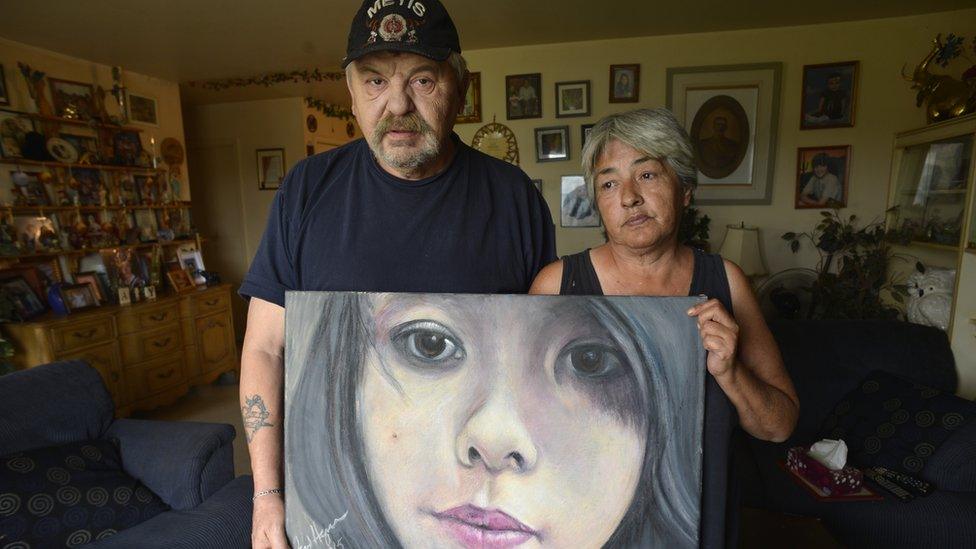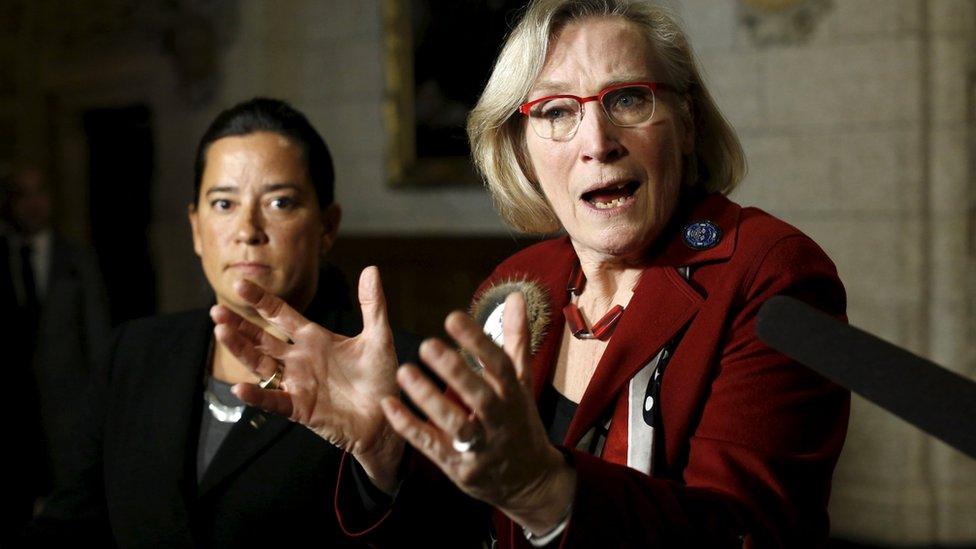Public hearings begin in missing and murdered indigenous women inquiry
- Published

Joe and Thelma Favel's niece, Tina Fontaine, was murdered in 2014
Canada's inquiry into missing and murdered indigenous women is hearing from its first witnesses.
Some 40 participants are registered for three days of public hearings in Whitehorse in Canada's Yukon territory.
The inquiry is focusing on the systemic causes of violence against indigenous women as well as on prevention.
A number of families have come out in recent weeks expressing concerns over the inquiry's delays and lack of transparency.
Chief commissioner Marion Buller said the inquiry is listening for both details from families about lost loved ones as well as any patterns or trends that emerge from all the stories.
On Tuesday, the inquiry heard the first of many harrowing and tearful testimonies from families who have lost relatives to violence.
Ms Buller said she hopes the families "gain some closure" by sharing their stories. The community hearings are open to the public unless relatives or other witnesses request privacy.
The federal government has said that some 1,200 aboriginal women have been murdered or gone missing in Canada since 1980, though some estimates put that number as high as 4,000.
Michèle Audette, another of the inquiry's five commissioners, said that "the eyes of the country and the world are watching. History will remember this moment".
Last week, Assembly of First Nations National Chief Perry Bellegarde raised issues with the lack of communication with families and First Nations in general by the inquiry.
Families, especially in remote communities, have complained it is difficult to get in contact with the inquiry.
Bill Wilson, a hereditary First Nations chief in British Columbia and the father of federal Justice Minister Jody Wilson-Raybould, called the inquiry a "bloody farce" in a Facebook post and said it had "failed miserably" even before public hearings began.
Inquiry commissioners have said they are aware of the concerns and are working on improving communications and re-evaluating the inquiry's timelines.
"I'm interested always in constructive criticism, of ways of doing our work better," Ms Buller said.
The inquiry will last at least two years and cost up to $53.8m (US$40m/£30.8m).
Launching a national inquiry was a key pledge by Prime Minister Justin Trudeau, following a growing call from some families, First Nations groups and international organisations like the United Nations.
Five independent commissioners will provide recommendations to deal with violence against the country's indigenous women. They are expected to table an interim report in November.
The Whitehorse hearings will be the only public ones for a while. Commissioners will only begin hearing public testimony again this fall.
- Published3 August 2016

- Published17 February 2016
